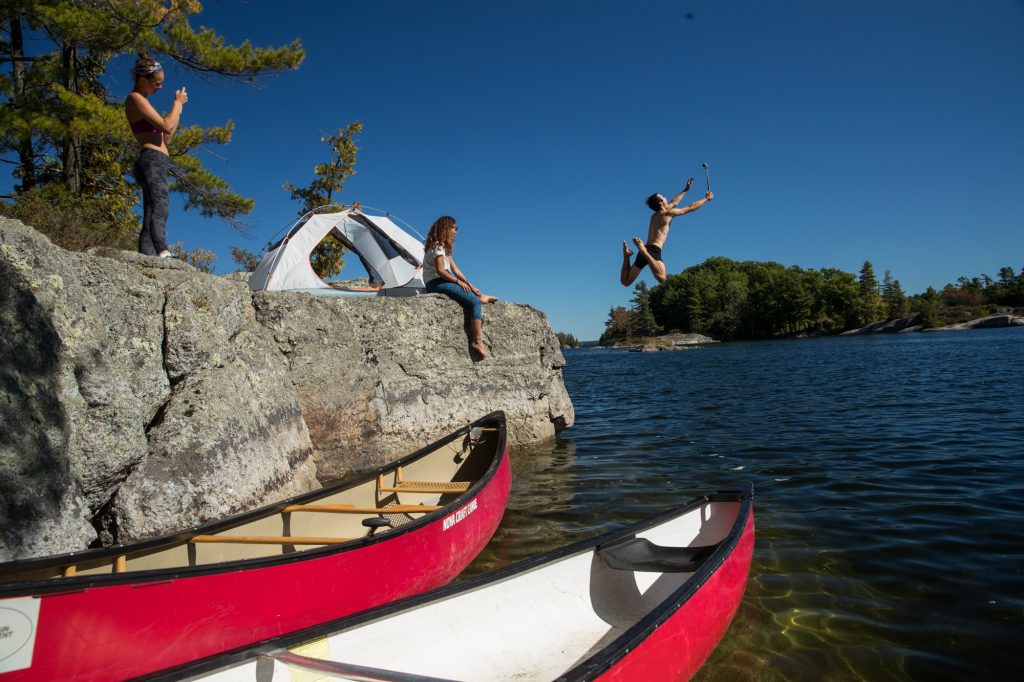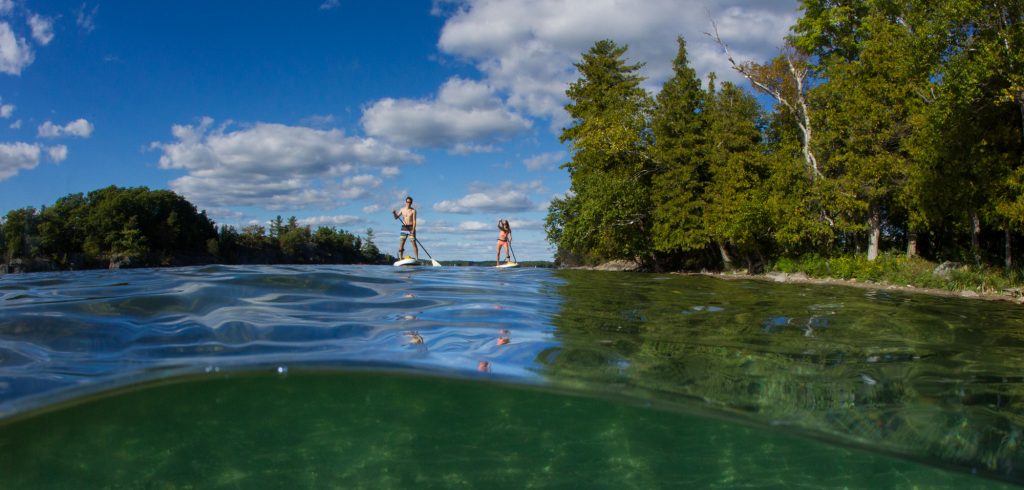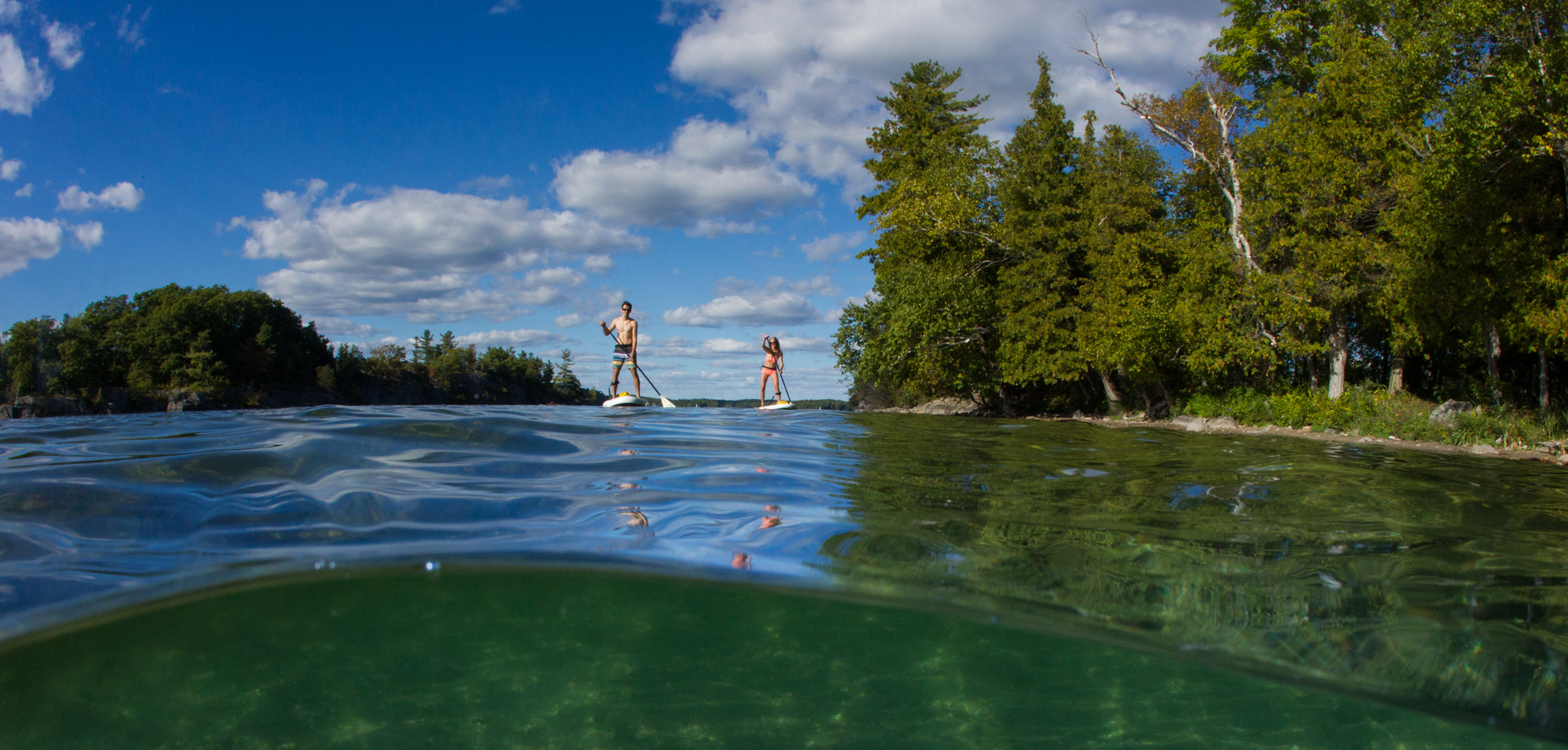
Over the last few decades, many organizations and individuals have focused on working to sustain and improve the health of Canada’s waters. Given water knows no boundaries, Canadian organizations need to overcome silos if we want to achieve real and lasting change in protecting our freshwater.
Our Living Waters (OLW) is a national water network that recognizes that sweeping, systemic change requires the organization and alignment of diverse groups addressing freshwater issues. Developed by Canadian freshwater leaders, OLW coordinates the strategies of freshwater advocates across Canada towards a singular goal: all waters in Canada in good health by 2030. Over 50 organizations are members of OLW.

MEC is one of those organizations. As part of its commitment to sustainability initiatives, the retail co-operative has supported OLW since its conception and has continued to provide support as OLW has evolved through building and testing to the current stage of implementation.
We interviewed Meriko Kubota, MEC’s Director, Strategic Partnerships and Community Investment, about why freshwater matters.
Why is freshwater important to MEC and MEC’s members?
We’re fortunate to have an abundance of freshwater in Canada, but we can’t take it for granted. We must ensure we support the healthy ecosystems that freshwaters are part of, so that we have access to clean drinking water and water that is safe to enjoy recreationally.
MEC is connected directly to freshwater through activities we support to help our members explore the innumerable lakes, rivers, and streams across the country—including kayaking, stand-up paddle boarding, swimming, and canoeing. We also had a hashtag campaign encouraging our members to use #myhomewaters to share their experiences with freshwater. We’ve seen a natural uptake in use of it, which is encouraging because we hope our members are not only exploring fresh waterways for recreation purposes but are also appreciating and connecting to freshwater.

What do you wish the MEC community knew about freshwater protection?
The specific issues around freshwater that are of concern in Canada are blue green algae and sewage pollution ‒ issues that directly affect our members’ ability to utilize fresh waterways. Once these precious resources are damaged, people aren’t using them. So, if we can address issues before they become full-fledged problems, then people can become more connected to their freshwaters. In turn, once they’re connected, they become natural advocates and stewards of those waterways.
How would you like MEC and its members to engage in efforts to protect freshwater in Canada?
The easiest way is to get outside and explore Canada’s lakes, rivers and streams. When you are connected to them, you’ll see their beauty and if you appreciate the fresh waterways, you cannot ignore the threats and concerns that impact them. Once people feel connected and see benefits from being out on the water and being out in nature, they are more likely to become stewards of these freshwater sources and do not take them for granted. Ideally, I would love to advocate for MEC members and non-members across Canada to get involved with their local NGOs—from Fraser Waterkeepers in the Lower Mainland to Lake Ontario Waterkeepers to Société de la rivière Saint-Charles in Quebec City. There are many, many grassroots organizations across the country connected to everyone’s regional and local waterways that people can get involved with.
What difference are you wanting to make with MEC’s partnership with Our Living Waters?
We’ve specifically supported OLW over the last three years to fund their collective impact framework. It’s been an exciting piece of work to be part of… to bring the efforts of various eNGOs across the country together toward a unified goal to ensure all waters in Canada are in good health by 2030. Our continued engagement with OLW is to ensure they have the capacity to deliver on their strategic framework, which addresses everything from pooling water knowledge across the country to building a movement and directly working on protection of freshwater and addressing concerns and threats to freshwater.

What are the strengths of Our Living Waters?
The strengths of the initiative are in convening and collaborating, not only as practitioners in freshwater but the funders who care about supporting them and being part of the social ecosystem of protecting freshwater.
What would you tell someone considering partnering with Our Living Waters or Tides Canada?
I’d invite them to join the community who cares deeply about freshwater in Canada and join the movement to protect our freshwater ensuring access to clean drinking water and safe waterways for our enjoyment.
How else is MEC investing in water protection?
MEC is working to address microplastics pollution and funding in a separate effort from OLW.
Plastic microfiber pollution is an unforeseen consequence of synthetic textiles breaking down over time and a result of regular laundering. MEC is committed to doing our part to help address the problem where we can. While we know polyester and nylon degrade over time and with regular laundering, no fibre shedding standards exist to drive improvements in our industry.
MEC is working with our peers in the outdoor industry to develop a ‘lint potential’ quality standard. A better understanding of source materials—by type and pathway—is also vitally needed by MEC and other manufacturers in order to address microfibre pollution. To that end, we recently invested $50,000 in research with Dr. Peter Ross, Director of ocean pollution research at the Vancouver Aquarium. We’re excited to be a part of this because it complements our OLW work where we’re specifically addressing freshwater issues and working with the hands-on NGOs across the country through OLW. The microplastics initiative allows MEC to address our industry impact and ensures MEC is being as diligent as possible to understand how we might be contributing to the problem and how we can create a standard not only for ourselves but for the entire industry.
Philanthropy and sustainability practices are a large part of MEC’s practices. What advice would you give to other organizations who would want to engage or partner with NGOs?
All businesses have opportunity to review how they connect to the environment—because they all do. We all provide a service or product. The best way is to look at how your business connects with the environment, and depending on how you do connect, find ways to be a part of the conversation for those particular issues. Dependencies for a mining company will look different from those of a telecommunications or accounting firm. Inevitably, though, all companies touch the environment in some way, so it’s a matter of contributing in a positive way towards improving and ensuring longevity of environment.
Learn more about our Healthy Watersheds program here and OLW work here. You can also contact Wendy Cooper. Learn more about MEC’s commitment to freshwater here.
